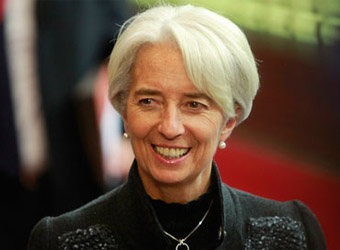The deposing of Egyptian President Mohammed Morsi by the military Wednesday likely freezes any chance for an International Monetary Fund bailout for the ailing economy until an internationally-recognized government is installed.
In recent months, a handful of neighboring countries such as Qatar have been keeping Egypt’s economy afloat by loaning the country’s central bank cash. That has bought Morsi government time to delay implementing the politically-sensitive measures the IMF has sought as a precondition before it gives Cairo a $4.8 billion credit line. In particular, the IMF had said that Egypt must raise taxes and begin phasing out fuel subsidies.
It’s not the only cash at stake. Other international donors have vowed another $9.7 billion for the country once the IMF program is in place. Roughly $1.55 billion in bilateral aid from Washington could also be held up: under U.S. law, the administration can’t loan money to countries where the military is involved in an unconstitutional change in government.
The fund typically only engages with a government if there’s widespread recognition by the international community that a legitimate government has been installed. The IMF isn’t likely to negotiate with military authorities in Cairo without such international consensus given that the fund’s board represents the world’s powers, and it’s unclear how long that process could take.
In the meanwhile, it’s also unclear whether the regional governments that had been injecting much-needed cash into Egypt’s reserves will continue to do so after Wednesday’s events.
Jon Alterman, director of the Middle East Program at the Center for Strategic and International Studies, says there’s a good chance that Qatar, which has aligned with the now-ousted Muslim Brotherhood, could drop its aid to Cairo following the coup. At the same time, Saudi Arabia and the United Arab Emirates could open up their cash spigots in support of the power change, he said.
“At this stage, it’s unclear where the money’s going to come from” to support the Egyptian economy, he said.
Source: Wall Street Journal


